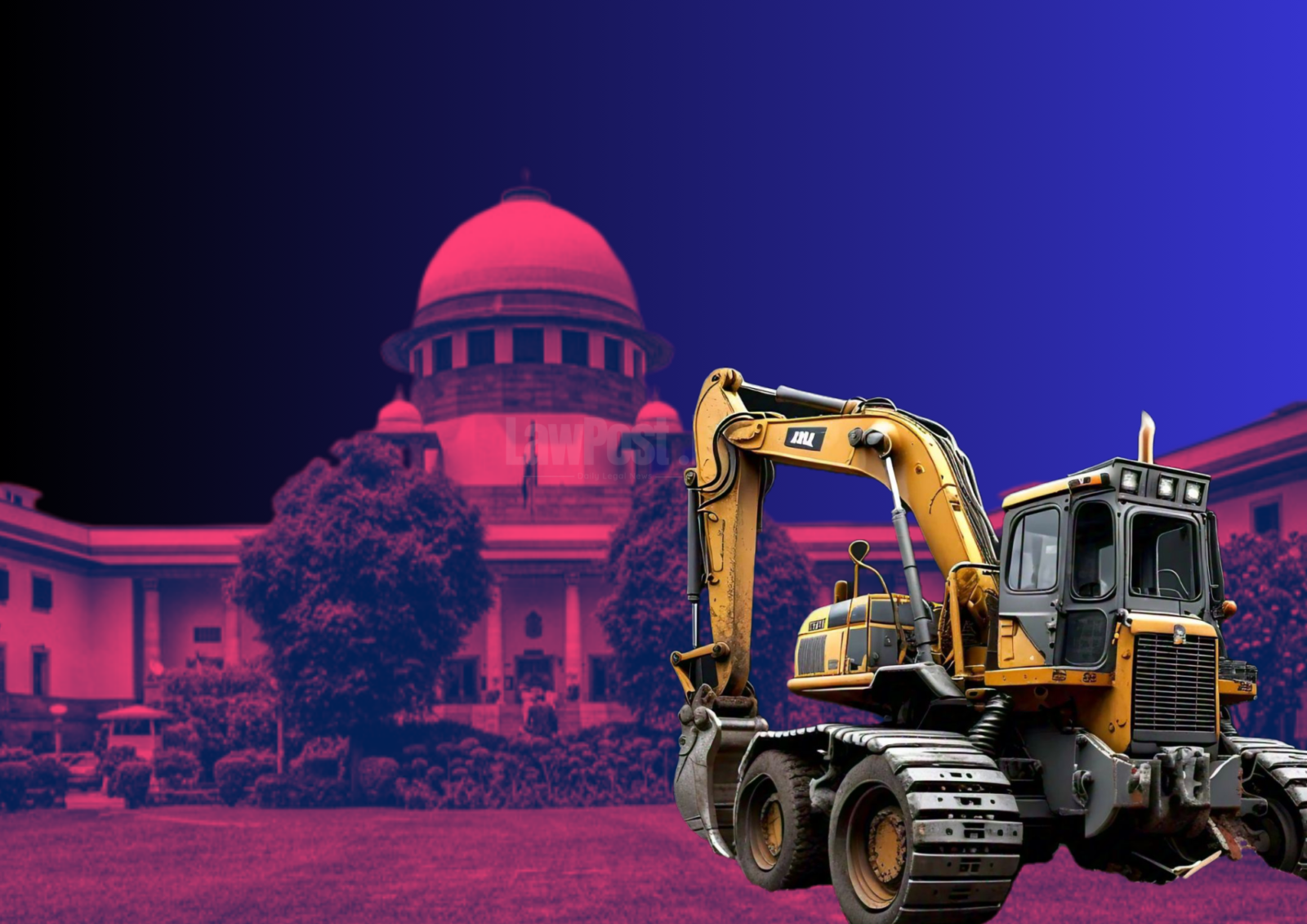In a significant ruling aimed at curbing arbitrary demolitions, the Supreme Court on Wednesday declared that State authorities cannot use bulldozers to punish individuals accused or even convicted of crimes. The court’s decision underscores that the rule of law must prevail, with the judiciary alone holding the authority to determine guilt.
A bench of Justices Bhushan R Gavai and KV Viswanathan criticized the practice, often referred to as “bulldozer justice,” whereby authorities demolish properties of those with alleged criminal backgrounds. The bench emphasized that demolitions as punishment violate constitutional rights, particularly the right to shelter enshrined in Article 21.
“The rule of law mandates against arbitrary actions,” stated Justice Gavai. “Public trust in government depends on protecting citizens’ rights and securing their property from capricious acts.” He added that the executive should not overstep judicial authority by punishing individuals through demolitions without due process.
Binding Guidelines to Ensure Fairness and Accountability
Exercising powers under Article 142 of the Constitution, the Court issued mandatory safeguards for demolitions. Key guidelines include:
- Due Notice and Personal Hearing: Property owners must receive a written notice, served by registered post, outlining the alleged violations and allowing a minimum 15-day response period. The court mandates a personal hearing and a “speaking order” explaining the demolition decision.
- Transparency and Documentation: Demolition processes must be videographed, with video evidence preserved to ensure adherence to court directives. Orders, including notice details, must be available on a public digital portal for transparency.
- Accountability for Officials: District magistrates will oversee demolitions to ensure compliance, and officials responsible for unauthorized demolitions will face disciplinary action, potential contempt charges, and personal liability for damages. Compensation for wrongful demolitions may be recovered directly from those responsible.
Condemning Selective and Unlawful Demolitions
The ruling comes amid public outcry over selective demolitions that allegedly target specific groups. Justice Gavai criticized these practices as “wholly illegal” and warned that selective demolitions erode public confidence in fair governance. The court stipulated that all citizens, regardless of background, must be treated equally under the law.
The court also clarified that its guidelines do not apply to demolitions of unauthorized constructions on public lands, such as roads or water bodies. However, it underscored that even in these cases, state actions must align with public interest and legal procedures.
Reaffirming Constitutional Rights
Justice Gavai reminded the executive that individuals accused of crimes retain constitutional protections and that bulldozer actions to penalize the accused without judicial oversight strike at the heart of the rule of law. He emphasized, “The executive cannot pronounce guilt and demolish a home; such actions challenge constitutional values.”
This ruling, on a batch of petitions opposing demolitions linked to criminal accusations, reinforces that State authorities must adhere strictly to procedural fairness. The court’s guidelines, forwarded to all States and Union Territories, serve as a nationwide mandate to protect citizens’ property rights against “bulldozer justice.”








